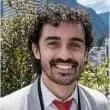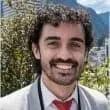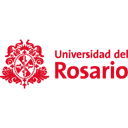This course is part of Herramientas para las buenas prácticas científicas.
This course serves as a pedagogical platform where students learn about the scientific problems that gave rise to the ethical meta-principle known as scientific integrity. Scientific integrity, or good scientific practices, represents the link between ethical theories and principles and the researcher's fieldwork. All scientific activities can be conducted according to universal recommendations and standards, which evolve as new practices and understandings of science emerge. This complex dynamic results in practices being carried out in various ways: incorrect forms (deliberate or not) that harm research participants; appropriate forms aligned with principles and respectful of stakeholders' interests; and questionable forms that fall between these extremes, sometimes making it difficult to determine if they benefit or violate individuals' rights. The curriculum addresses issues related to prior research agreements, conflicts of interest, proper data use, authorship, and other practices connected to research products. Students will learn to guide research toward good scientific practices through case studies, forums, readings, and digital activities. The course provides conceptual elements to differentiate scientific misconduct from good practice, along with tools and strategies to support this aim. It also includes new scientific trends challenging traditional research methods, such as open science, focusing on its demands and challenges.
4.3
(23 ratings)
Spanish
Spanish
What you'll learn
Understand the foundations and principles of scientific integrity in research
Identify pillars and challenges of open science in contemporary research contexts
Manage conflicts of interest ethically throughout the research process
Assess and mitigate risks in research planning and execution
Implement best practices for ethical research data management
Develop appropriate informed consent processes that protect participants
Skills you'll gain
This course includes:
PreRecorded video
Graded assessments
Access on Mobile, Tablet, Desktop
Limited Access access
Shareable certificate
Closed caption
Get a Completion Certificate
Share your certificate with prospective employers and your professional network on LinkedIn.
Created by
Provided by

Top companies offer this course to their employees
Top companies provide this course to enhance their employees' skills, ensuring they excel in handling complex projects and drive organizational success.





There are 4 modules in this course
This course provides a comprehensive framework for understanding and implementing scientific integrity in research practices. The curriculum is organized around the complete research lifecycle, from project planning through execution to the transfer of research outputs. The first module introduces the foundations of scientific integrity within the context of open science, exploring its pillars and challenges. Students learn to identify the general principles that should guide ethical research conduct and understand how these principles are evolving in the open science environment. The second module focuses on good practices in research planning, addressing critical issues such as managing conflicts of interest and assessing research risks. These elements are essential for establishing an ethical foundation before research begins. The third module examines good practices during research execution, with particular emphasis on the proper use of research data and informed consent processes. Students learn how to handle data ethically and ensure participants' rights are respected throughout the research process. The final module covers good practices in research transfer, exploring publication ethics and proper attribution in research outputs. Throughout the course, students engage with practical case studies and digital activities that reinforce conceptual learning, developing their ability to distinguish between questionable research behaviors and best practices. The pedagogical approach emphasizes pragmatic strategies that researchers can implement to enhance scientific standards in their work.
Tema 1: Desafíos de la ciencia abierta y generalidades de la integridad científica
Module 1
Tema 2: Buenas prácticas en la planificación de un proyecto de investigación
Module 2
Tema 3: Buenas prácticas en la ejecución de un proyecto de investigación
Module 3
Tema 4: Buenas Prácticas en la transferencia de un proyecto de Investigación
Module 4
Fee Structure
Individual course purchase is not available - to enroll in this course with a certificate, you need to purchase the complete Professional Certificate Course. For enrollment and detailed fee structure, visit the following: Herramientas para las buenas prácticas científicas
Payment options
Financial Aid
Instructors

1 Course
Expert in Bioethics, Epidemiology, and Scientific Integrity at Universidad del Rosario
Juan Guillermo Pérez Carreño is a physician currently affiliated with Universidad del Rosario, where he specializes in bioethics and epidemiology and serves as the technical secretary of the university’s Research Ethics Committee. His academic background includes a medical degree from Universidad del Quindío, a master’s in bioethics from Universidad El Bosque, and a master’s in epidemiology from Universidad del Rosario. He is also pursuing a PhD in Epidemiology at the University of Florida

1 Course
Legal Researcher in Scientific Integrity at Universidad del Rosario
Jesús Orlando Croce Rodríguez is a lawyer and research professional in scientific integrity affiliated with the Directorate of Research and Innovation at Universidad del Rosario. He is also a member of the Research Ethics Committee (Life Sciences Division) at the same institution, contributing his expertise to the promotion of ethical standards and integrity in academic research
Testimonials
Testimonials and success stories are a testament to the quality of this program and its impact on your career and learning journey. Be the first to help others make an informed decision by sharing your review of the course.
Frequently asked questions
Below are some of the most commonly asked questions about this course. We aim to provide clear and concise answers to help you better understand the course content, structure, and any other relevant information. If you have any additional questions or if your question is not listed here, please don't hesitate to reach out to our support team for further assistance.



